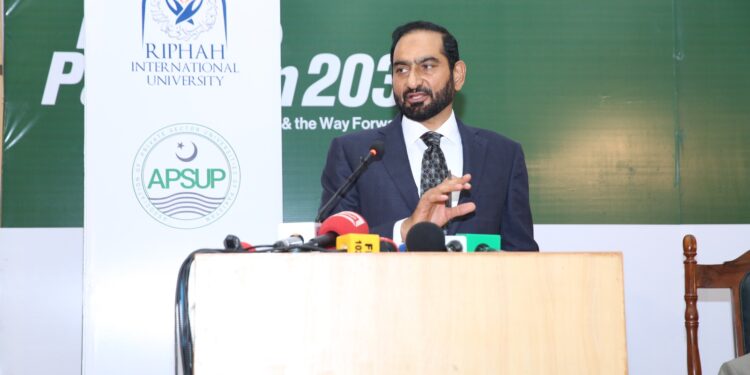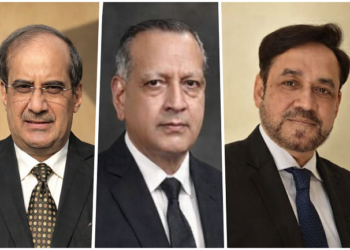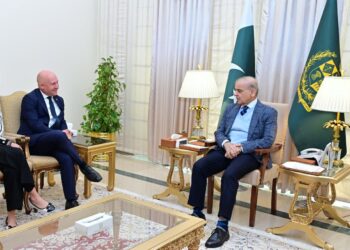Imagine Pakistan-2030 seminar.
ISLAMABAD, September 24, 2015: Speakers at a seminar in the Riphah International University here on Wednesday called for creation of more provinces in the country with the aim of improving administration service delivery.
The seminar titled “Imagine Pakistan 2030: Challenges, Opportunities and the Way Forward”, was organised by the All Pakistan Private Sector Universities of Pakistan and Riphah International University.
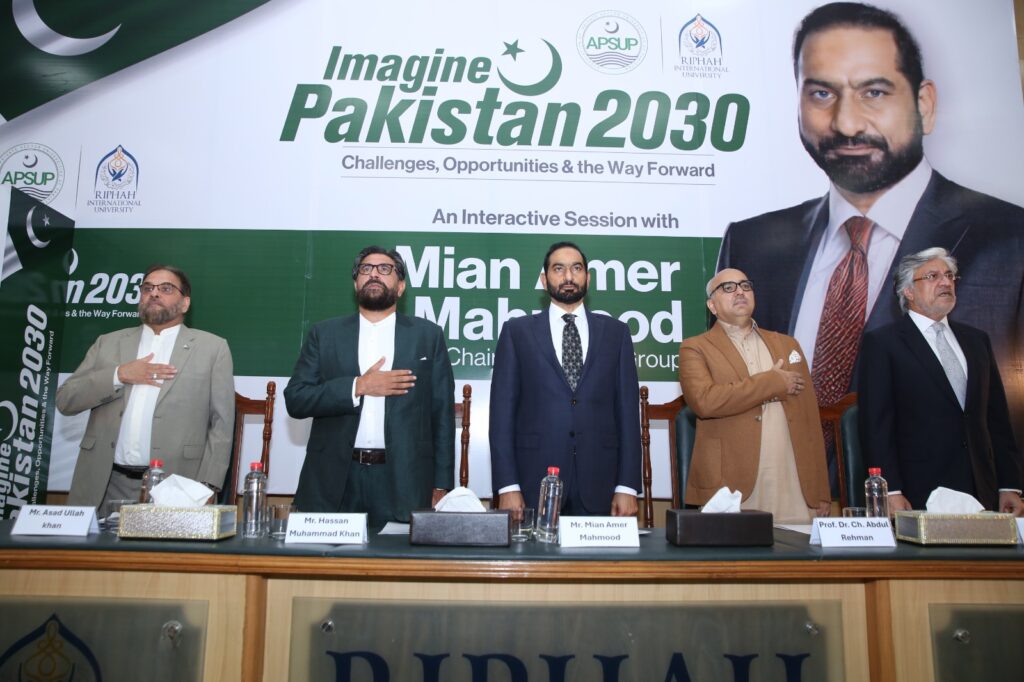
Speaking on the occasion, Riphah International University Chancellor Hassan Muhammad Khan said that hard work and determination is the key to success in any sphere of life.
The institutions are not built in a day and same is the case of Riphah International University and other institutions in the country. He mentioned what kinds of problems were faced by his father and founder of the university, Maj Gen (r) Dr Muhammad Zulfiar Ali Khan, in the beginning when the institution was being established.
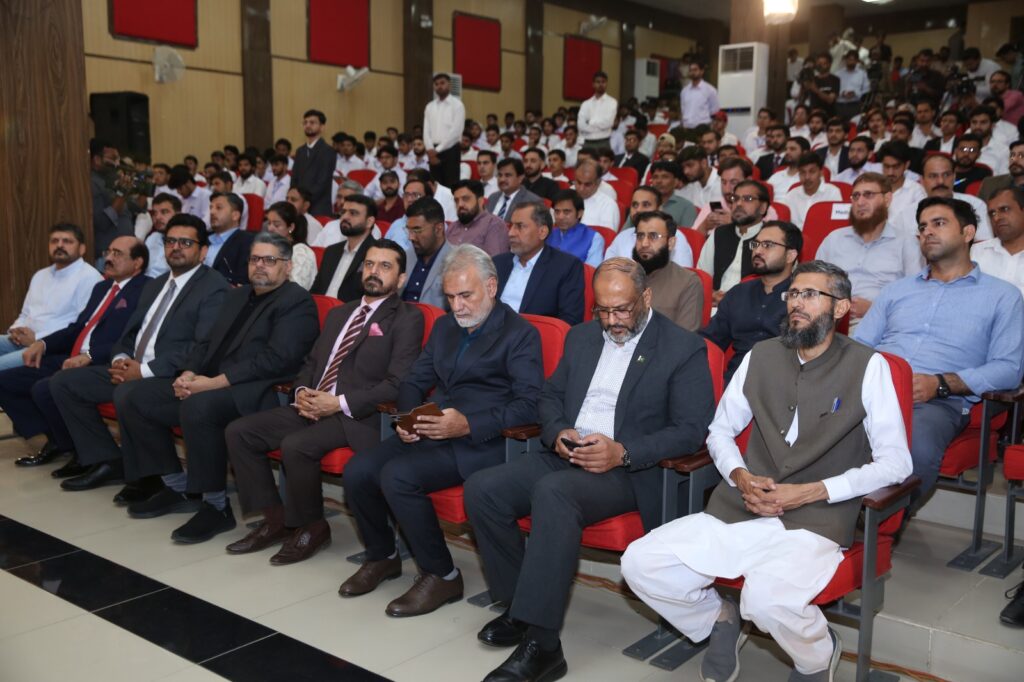
Hassan Muhammad asked students to contribute to the country’s development. “I like former US president Kennedy’s quote: ask not what your country can do for you but what you can do for your country,” he added.
He further said that decentralization and creation of more provinces would improve service delivery and solve many problems in governance in the country.
Mian Amer Mehmood, chairman of the Punjab Group of Colleges, said that public welfare is the main objective of any state, which come into being for the same purpose on the map of the world. However, he said that citizens in Pakistan have log faced lack of facilities and poor service delivery.
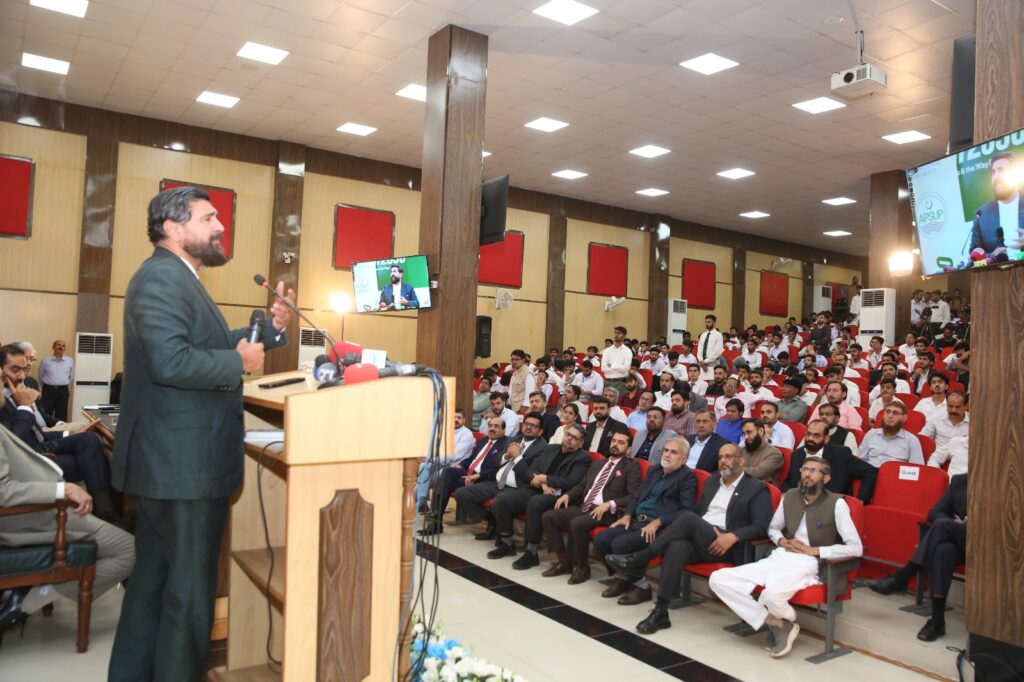
He said that only solution to the issues was the creation of more provinces in the country. “Every division should be made a province, which means people’s problems would be solved at their doorsteps, and they would not need to move to main cities like provincial capitals or Islamabad,” he added.
He also said that around 25 million children were out of schools in the country while 44% children were facing stunting growth due to malnutrition in the country.
Quoting a World Bank report, Mehmood said that major hurdles for Pakistan in becoming high income country were poor governance, weak institutions that leads to corruption, and unfair planning for development schemes that are done on the basis of political affiliations.
He cited the examples of countries with good service delivery, including China having 31 provinces and the US with 50 states. “In our neughbouring country Indi, there were nine states at the time of its inception, but now there are 37 states,” he added.
Speaking on the occasion, Prof Chaudhry Abdul Rehman, the chairman of APSUP, said that youth had a great role to play in the country’s development.
“After the May 9 violence by a political party activists in the country, we conducted a survey research and found out that the main problem the country faces is not the lack of skilled youth, but that our youth lack of clarity of purpose.
He said that Prophet Muhammad (peace be upon him) was the best role model and teachers should follow the prophetic principles to inspire the students.
















